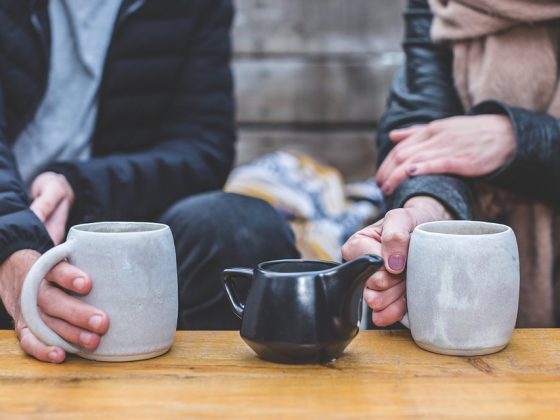Coffee is a beloved beverage that many people rely on to kickstart their day, boost their energy, and even provide a sense of comfort. However, while coffee can be a delicious and energizing addition to your daily routine, it is important to enjoy it in moderation and be mindful of how it may impact your overall lifestyle. Finding balance when it comes to coffee consumption is key to preventing negative effects on your health, sleep, and overall well-being.
Here are some tips on how to enjoy coffee without negatively impacting your lifestyle:
1. Limit your intake: While it may be tempting to have multiple cups of coffee throughout the day, it is important to be mindful of your caffeine consumption. Too much caffeine can lead to jitteriness, anxiety, disrupted sleep, and even heart palpitations. It is generally recommended to limit your caffeine intake to around 400 milligrams per day, which is equivalent to about four cups of brewed coffee. Be aware of how much caffeine is in the coffee you are drinking and consider opting for decaffeinated coffee in the afternoon or evening to avoid disrupting your sleep.
2. Be mindful of additives: Many people enjoy their coffee with sugar, cream, flavored syrups, or whipped cream, which can add extra calories, sugar, and unhealthy fats to your diet. While it is okay to indulge in these tasty additions occasionally, be mindful of how they may impact your overall health. Consider opting for healthier alternatives such as almond milk, stevia, or cinnamon to add flavor to your coffee without the extra calories and sugar.
3. Stay hydrated: Coffee is a diuretic, meaning it can lead to increased urination and potentially dehydration. To counteract this effect, be sure to drink plenty of water throughout the day to stay hydrated and maintain your overall health. Consider alternating between coffee and water to ensure you are getting enough fluids and prevent dehydration.
4. Listen to your body: Pay attention to how your body reacts to coffee and adjust your consumption accordingly. If you find that coffee makes you jittery or anxious, consider cutting back on your intake. If you experience heartburn or digestive issues after drinking coffee, you may want to opt for a lower-acid coffee or drink it with food to help alleviate these symptoms. Everyone is different, so it is important to listen to your body and make choices that work best for you.
5. Practice moderation: Like many things in life, moderation is key when it comes to enjoying coffee. While coffee can be a delicious and energizing beverage, it is important not to rely on it as your sole source of energy or comfort. Make sure to balance your coffee consumption with other healthy habits such as eating a balanced diet, getting regular exercise, and practicing stress management techniques. By maintaining a balanced lifestyle, you can enjoy coffee as a treat rather than a crutch.
Frequently Asked Questions (FAQs):
Q: Is coffee bad for your health?
A: In moderation, coffee can be part of a healthy diet and lifestyle. Coffee is rich in antioxidants and has been linked to a reduced risk of certain diseases such as Parkinson's disease, Alzheimer's disease, and type 2 diabetes. However, excessive coffee consumption can lead to negative side effects such as insomnia, jitters, and increased heart rate. It is important to enjoy coffee in moderation and be mindful of how it may impact your individual health.
Q: Can coffee help with weight loss?
A: Some studies suggest that caffeine may aid in weight loss by increasing metabolism and promoting fat burning. However, any potential weight loss benefits of coffee are likely to be modest and should not be relied upon as a sole weight loss strategy. It is important to focus on a balanced diet, regular exercise, and overall healthy lifestyle habits for sustainable weight loss.
Q: Is it safe to drink coffee while pregnant?
A: While moderate coffee consumption is generally considered safe during pregnancy, it is important to be mindful of your caffeine intake. High levels of caffeine can increase the risk of miscarriage and low birth weight. It is recommended to limit caffeine intake to 200 milligrams per day during pregnancy, which is roughly equivalent to one 12-ounce cup of coffee.
Q: Can I drink coffee late in the day?
A: Drinking coffee late in the day can disrupt your sleep and lead to difficulties falling asleep or staying asleep. It is generally recommended to avoid caffeine in the afternoon and evening to prevent negative effects on your sleep quality. If you are sensitive to caffeine, consider switching to decaffeinated coffee or opting for herbal tea as an alternative in the evening.
In conclusion, finding balance when it comes to enjoying coffee is key to preventing negative impacts on your lifestyle. By being mindful of your caffeine intake, choosing healthier additives, staying hydrated, listening to your body, and practicing moderation, you can continue to enjoy coffee as a delicious and energizing beverage without sacrificing your overall health and well-being. Remember to listen to your body, make choices that work best for you, and enjoy your coffee as a treat rather than a crutch in your daily routine.











